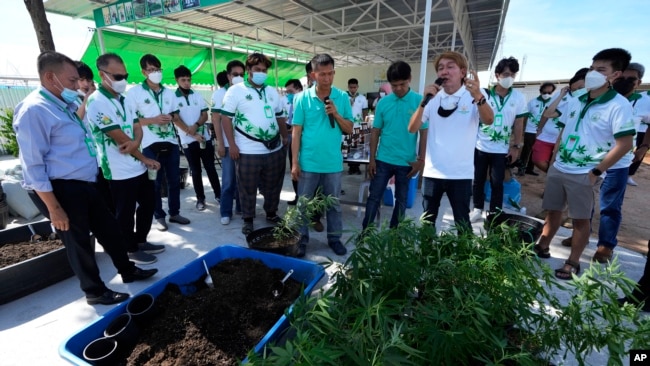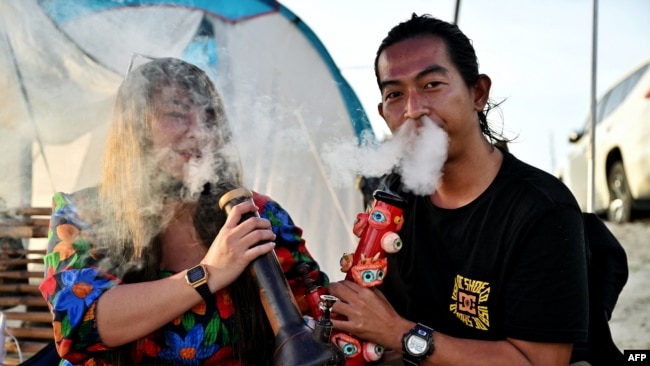Thailand may have legalised smoking weed for recreational use - but not for the country's police who have direct orders to stop blazing up in the station.
Police officers up and down the south-east Asian country are being told to resist partaking while working at the nick as the rest of the country navigates the newly-sanctioned herb.
Gen. Suwat Chaengyodsuk from the Royal Thai Police also told station chiefs in a memo to prosecute anyone stinking of the pungent flower under the Public Health act.
In a signed memo, he called on bosses to keep officers in-line and away from the substance - which has now been officially removed from Thailand's narcotics list - so they don't affect public opinion of the police.
It comes after Thailand legalised the growing of marijuana and its consumption in food and drinks in mid-June.
The country became the first in Asia to do so, and officials hope the move will boost its agriculture and tourism sectors - but smoking in public can still be considered a violation of public health laws.
Shoppers queued up at outlets selling cannabis-infused drinks, sweets and other items as advocates of the plant welcomed the reform in a country that has long had a reputation for strict anti-drug laws.
Among those at the front of the queue at one Bangkok shop was Rittipong Dachkul, 24, waiting overnight to buy his first ever legal marijuana.
"I took a bus here after I got off work," Rittipong said.
"We're now able to find it easily, we don’t have to worry about the source, but I have no idea about the quality," he said, referring to the strength of the products on offer.
Thailand, which has a tradition of using cannabis to relieve pain and fatigue, legalised medicinal marijuana in 2018.
The government, banking on the plant as a cash crop, plans to give away a million plants to encourage farmers to take up its cultivation.
"After Covid, the economy going down the drain, we really do need this," said Chokwan Kitty Chopaka, who owns a shop selling cannabis gum sweets.One rule is that the cannabis must not exceed 0.2% THC, the psychoactive compound in marijuana
But authorities aim to head off an explosion of recreational use by limiting the strength of the products on offer.
The possession and sale of cannabis extracts containing more than 0.2% of its psychoactive ingredient, tetrahydrocannabinol (THC), is not allowed.
Those who break the law can still face jail and fines.
Cannabis growers have to register on a government app called PlookGanja, or grow ganja, another nickname for the spikey-leafed plant.
Nearly 100,000 people have signed up to the app, said health ministry official Paisan Dankhum.








